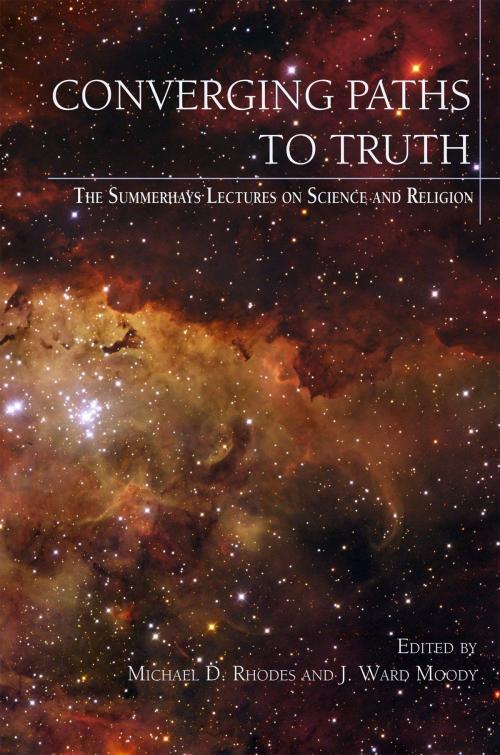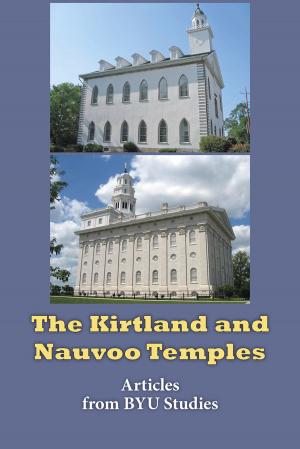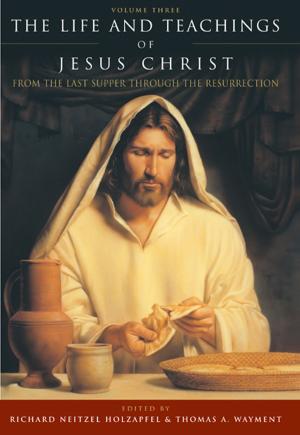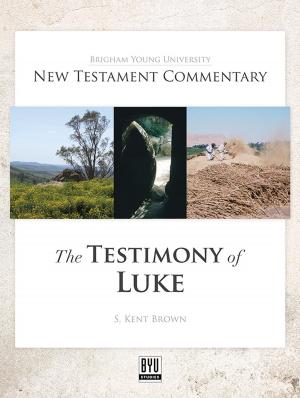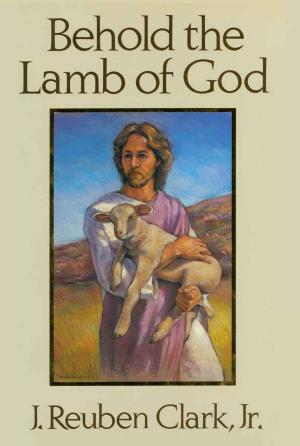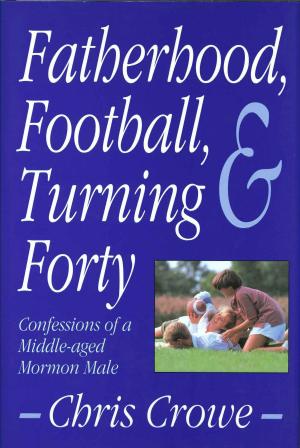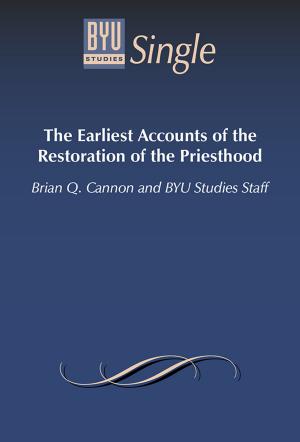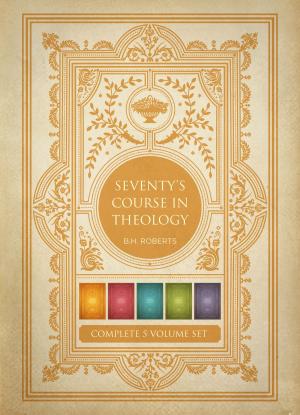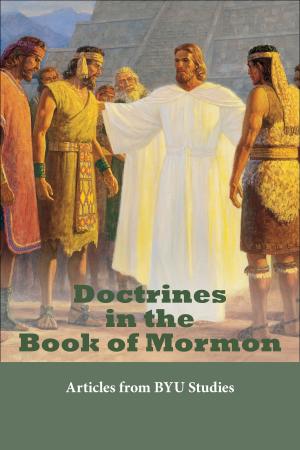Converging Paths to Truth
The Summerhays Lectures on Science and Religion
Nonfiction, Religion & Spirituality, Christianity, Denominations, Mormonism| Author: | ISBN: | 9781629736136 | |
| Publisher: | Deseret Book Company | Publication: | January 1, 2011 |
| Imprint: | Religious Studies Center | Language: | English |
| Author: | |
| ISBN: | 9781629736136 |
| Publisher: | Deseret Book Company |
| Publication: | January 1, 2011 |
| Imprint: | Religious Studies Center |
| Language: | English |
Are science and religion in conflict with one another, or do they support each other? Does one's belief and allegiance to science discredit or disavow religion - or vice versa? Many great scientists such as Newton and Einstein spoke and wrote freely of their religious thoughts and feelings, seeing no fundamental conflict between them and their science. Today there is a tendency to emphasize conflict more than harmony. Sometimes people of faith are criticized as blind, naive, or shallow, while scientists are painted as arrogant, unfeeling, or deceived. Educated dialogue between these two camps has too often been reduced to shallow platitudes or, even worse, silence.
The chemist who developed the absolute rate of chemical reactions theory, Henry Eyring, wrote, "The scientific method which has served so brilliantly in unraveling the mysteries of the world must be supplemented by something else if we are to enjoy to the fullest the blessings that have come of the knowledge gained. It is the great mission and opportunity of religion to teach men 'the way, the truth, the life,' that they might utilize the discoveries of the laboratory to their blessing and not to their destruction." Eyring's teachings suggest that when the discoveries of the scientific method become working partners with faith, each enhances the other to the blessing of humankind.
Truth is not in conflict with itself. Religious truth is established through revelation, and scientific inquiry has uncovered many facts that have thus far stood the test of time. It is incumbent upon us to seek insights into all truth to mesh together, where possible, its parts at their proper interface. We discover bridges between scientific and religious knowledge best if we pursue them through study, faith, and ongoing dialogue. The Summerhays lectures and this book are dedicated to discover and share insights on how the truths of revealed religion entwine with knowledge from the sciences.
- Contents
- FAITH AND THE SCIENTIFIC METHOD
Terry B. Ball - IN YOUR MIND AND IN YOUR HEART
Rodney J. Brown - CONCERNING ASTRONOMICAL REFERENCE FOUND IN THE SCRIPTURES
H. Kimball Hansen - A BRIEF SURVEY OF SIR ISAAC NEWTON'S VIEWS ON RELIGION
Steven E. Jones - THE QUEST FOR TRUTH: SCIENCE AND RELIGION IN THE BEST OF ALL WORLDS
Robert L. Millet - TIME IN SCRIPTURE AND SCIENCE: A CONCILIATORY KEY?
J. Ward Moody - THE SCRIPTURAL ACCOUNTS OF THE CREATION: A SCIENTIFIC PERSPECTIVE
Michael D. Rhodes - EVOLUTION AND THE GOSPEL: SEEKING GRANDEUR IN THIS VIEW OF LIFE
Michael F. Whiting INDEX
INTRODUCTION
Michael D. Rhodes and J. Ward Moody
Are science and religion in conflict with one another, or do they support each other? Does one's belief and allegiance to science discredit or disavow religion - or vice versa? Many great scientists such as Newton and Einstein spoke and wrote freely of their religious thoughts and feelings, seeing no fundamental conflict between them and their science. Today there is a tendency to emphasize conflict more than harmony. Sometimes people of faith are criticized as blind, naive, or shallow, while scientists are painted as arrogant, unfeeling, or deceived. Educated dialogue between these two camps has too often been reduced to shallow platitudes or, even worse, silence.
The chemist who developed the absolute rate of chemical reactions theory, Henry Eyring, wrote, "The scientific method which has served so brilliantly in unraveling the mysteries of the world must be supplemented by something else if we are to enjoy to the fullest the blessings that have come of the knowledge gained. It is the great mission and opportunity of religion to teach men 'the way, the truth, the life,' that they might utilize the discoveries of the laboratory to their blessing and not to their destruction." Eyring's teachings suggest that when the discoveries of the scientific method become working partners with faith, each enhances the other to the blessing of humankind.
Truth is not in conflict with itself. Religious truth is established through revelation, and scientific inquiry has uncovered many facts that have thus far stood the test of time. It is incumbent upon us to seek insights into all truth to mesh together, where possible, its parts at their proper interface. We discover bridges between scientific and religious knowledge best if we pursue them through study, faith, and ongoing dialogue. The Summerhays lectures and this book are dedicated to discover and share insights on how the truths of revealed religion entwine with knowledge from the sciences.
- Contents
- FAITH AND THE SCIENTIFIC METHOD
Terry B. Ball - IN YOUR MIND AND IN YOUR HEART
Rodney J. Brown - CONCERNING ASTRONOMICAL REFERENCE FOUND IN THE SCRIPTURES
H. Kimball Hansen - A BRIEF SURVEY OF SIR ISAAC NEWTON'S VIEWS ON RELIGION
Steven E. Jones - THE QUEST FOR TRUTH: SCIENCE AND RELIGION IN THE BEST OF ALL WORLDS
Robert L. Millet - TIME IN SCRIPTURE AND SCIENCE: A CONCILIATORY KEY?
J. Ward Moody - THE SCRIPTURAL ACCOUNTS OF THE CREATION: A SCIENTIFIC PERSPECTIVE
Michael D. Rhodes - EVOLUTION AND THE GOSPEL: SEEKING GRANDEUR IN THIS VIEW OF LIFE
Michael F. Whiting INDEX
INTRODUCTION
Michael D. Rhodes and J. Ward Moody
